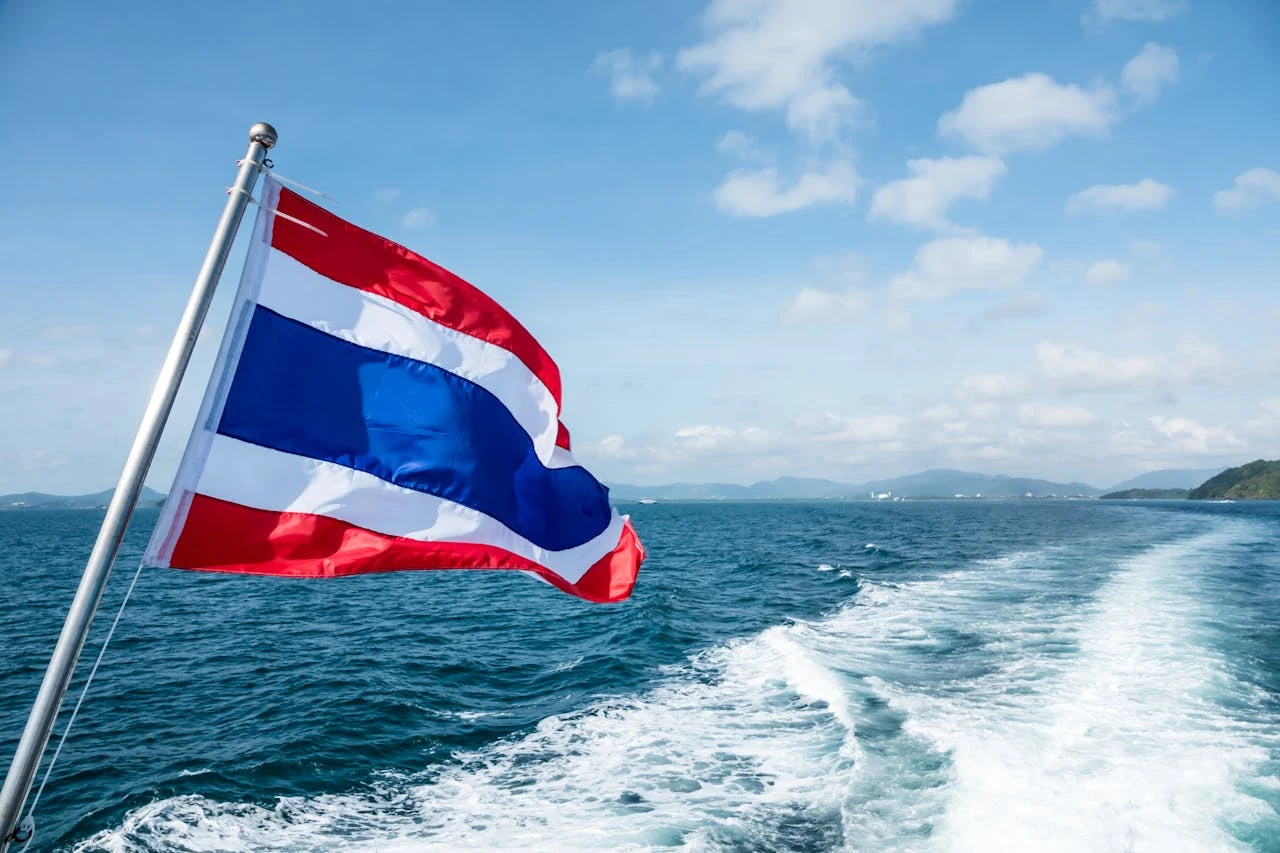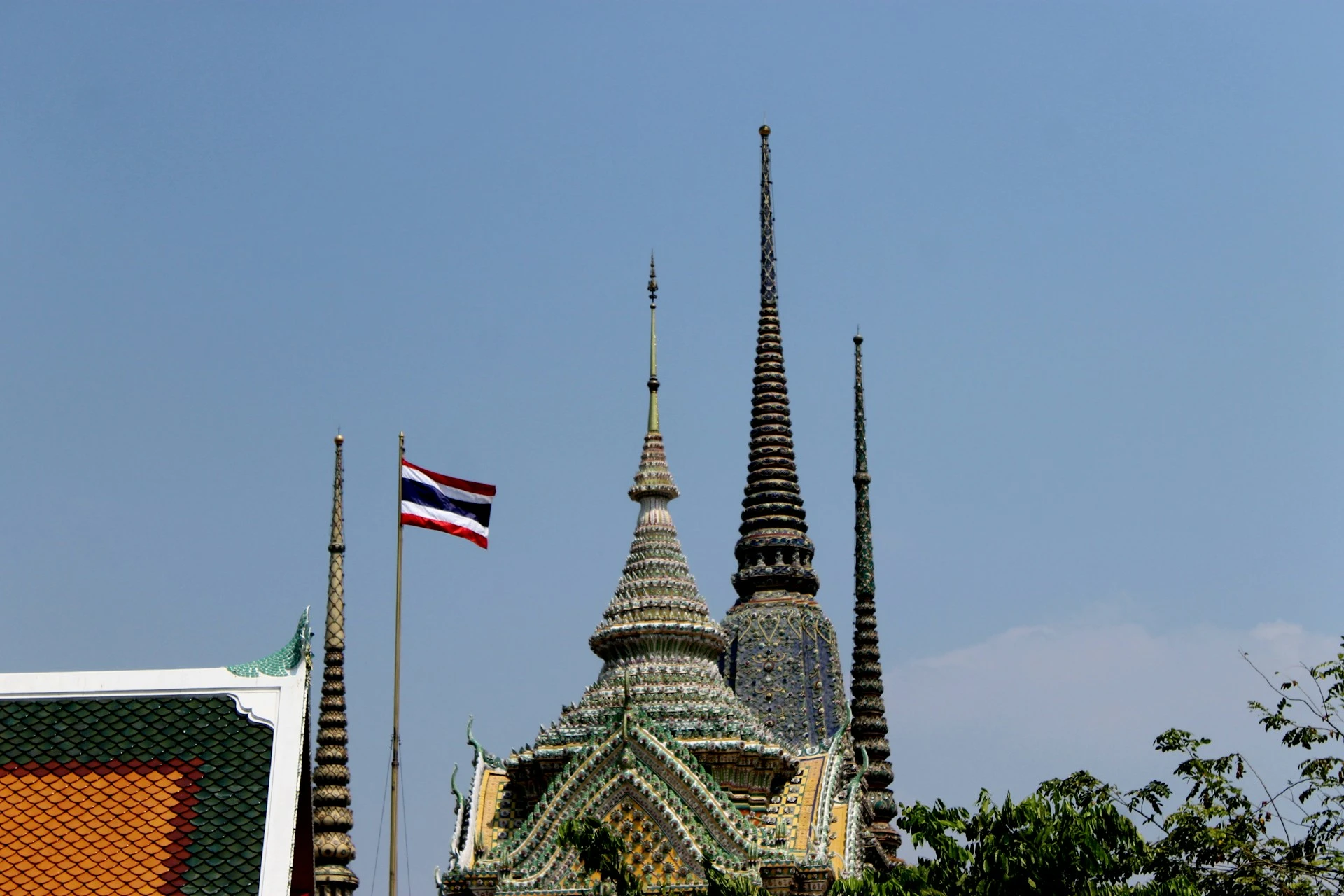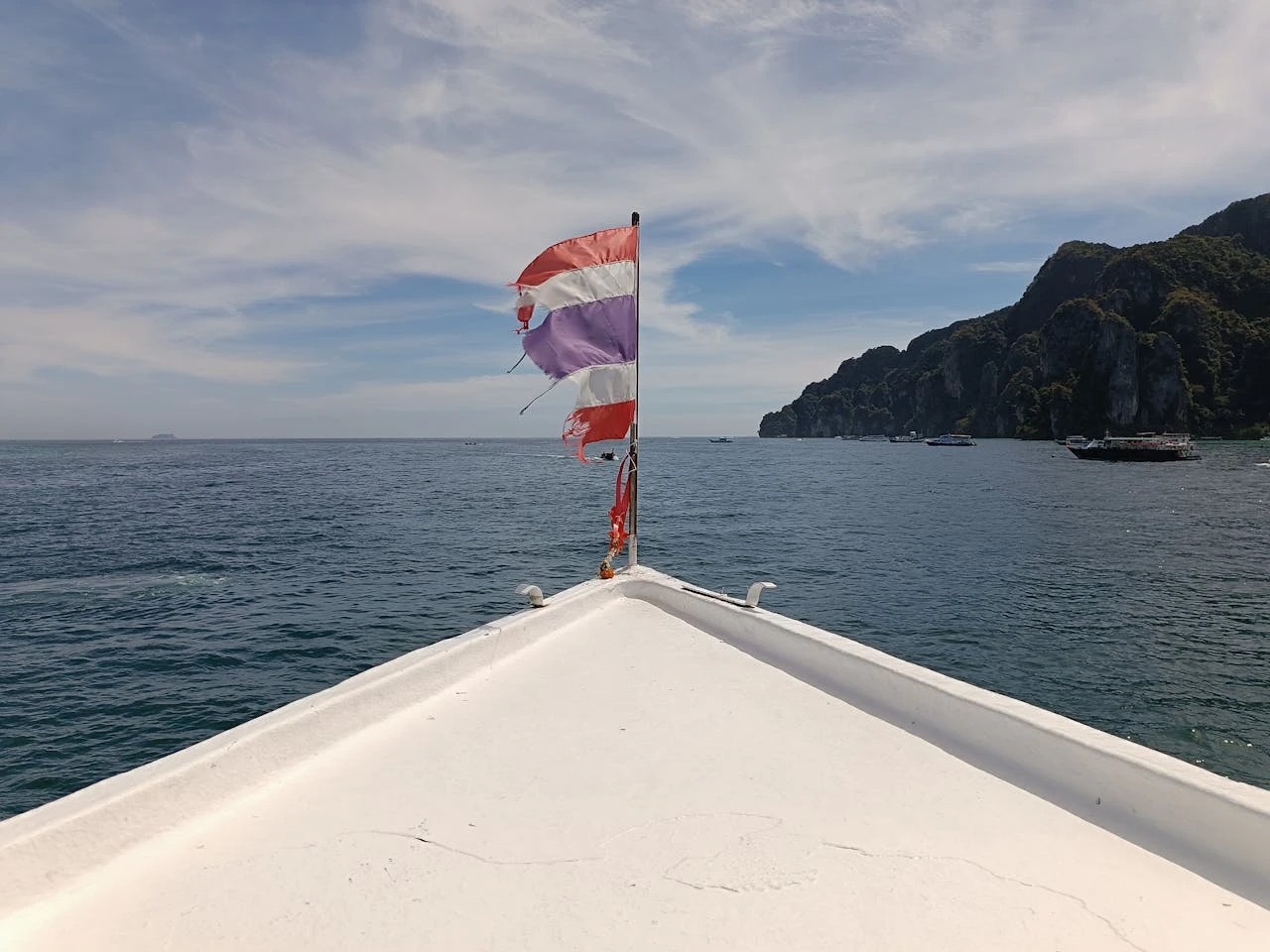The Ultimate Guide to Thailand eVisa: Application and Requirements


Thailand is one of the most visited countries in Asia, famous for its temples, beaches, and buzzing street food culture. But before you can enjoy all that, you need to figure out the visa process.
For years, tourists had to line up at embassies or risk waiting at the airport for a visa on arrival. Today, the Thailand eVisa system offers a much simpler solution.
Instead of carrying stacks of paperwork or making multiple embassy visits, travelers can now apply entirely online. This saves time, reduces mistakes, and helps you focus on planning your trip rather than stressing about documents.
Whether you’re visiting for leisure, a business purpose, or even medical treatment, the eVisa makes travel smoother.
What Is Thailand eVisa?
The Thailand eVisa is an electronic visa launched by the Thai government to modernize the entry process for international travellers. It is part of a wider e visa system adopted by several countries worldwide.
Unlike a sticker visa, which is stamped inside your passport, the eVisa is fully digital. Once approved, your details are stored in the Thai immigration database.
When you land at Suvarnabhumi, Don Mueang, or any other international airport, the immigration officer can verify your approval electronically.
This system is especially helpful for people from eligible countries who used to face long queues at consulates. For example:
- A traveler from France heading to Bangkok for a casual visit can now apply online in just 15 minutes.
- A business executive from the US needing a quick trip for meetings can get approval without mailing passports to the consulate general.
It’s efficient, paperless, and globally recognized.

Thailand Tourist Visa vs. eTourist Visa
A lot of travelers get mixed up between a Thailand tourist visa and an e tourist visa, but they’re not the same. Both serve the same purpose letting you enter Thailand for tourism purposes but the way you apply and the flexibility they offer are quite different.
Thailand Tourist Visa (Traditional)
The traditional tourist visa is issued at the Royal Thai Embassy or consulate general in your home country. To get it, you must submit paper documents such as your passport, bank statement, return ticket, and sometimes even an invitation letter if staying with friends or family. Processing can take several days to weeks, depending on the foreign affairs office workload.
This type of visa is often preferred by travelers who:
- Plan on multiple entries into Thailand during their trip.
- Want a longer stay (up to 60 or 90 days).
- Prefer having a sticker visa physically stamped inside their passport.
While it requires more effort, the traditional tourist visa remains valid and is still used by those who need extra flexibility.
Thailand eTourist Visa
On the other hand, the Thailand eTourist Visa is entirely digital. Instead of mailing your separate passport or waiting in long lines, you apply through the e visa platform. The application form, supporting uploaded documents, and even the processing fee payment are all handled online.
You’ll need to upload:
- A white background passport photo.
- Proof of accommodation or hotel booking.
- A confirmed onward journey ticket (like a return flight).
- Financial proof, such as a bank statement, showing you have sufficient money to cover your trip.
The e visa system links your approval to Thai immigration electronically. That means when you arrive, the immigration officer can see your details on their system.
The main benefits? Speed, convenience, and no embassy visits. Most applicants get their eVisa processed within 3–7 business days.
Is eVisa the Same as Visa Exemption?
Many also ask: Is the eVisa the same as the visa exemption? The short answer is no. The visa exemption scheme allows nationals from certain eligible countries to enter Thailand without applying for a visa at all, usually for stays of 15 to 30 days.
For example, citizens from Japan, South Korea, and many European nations can enter visa-free under this scheme.
However, if you’re from a country that isn’t part of the visa exemption scheme such as India or Pakistan or if you want to stay longer than the exemption period, then the e visa application process becomes essential.
In short:
- If you want quick entry and your country isn’t exempt, apply for an eTourist Visa.
- If you need longer stays or multiple entries, the traditional tourist visa might suit you better.
- If you’re lucky enough to be part of the visa exemption scheme, you may not need either for short trips.
Countries Eligible for Thailand eVisa
The Thailand eVisa program has opened doors for travelers across the world, making it far easier to enter Thailand without lengthy embassy visits.
Currently, the list of countries eligible for the eVisa covers most of Europe, North America, and parts of Asia, along with select nations in Africa and Oceania.
Travelers from the UK, US, Australia, Germany, France, Canada, India, and Japan are all eligible to apply online. This digital system was introduced by the Thai government to reduce paperwork, speed up processing, and support the growing demand for tourism and business visas.
Common Questions on Eligibility
Are Indians eligible for a Thai eVisa?
Yes. Indian citizens can apply online through the official e visa platform. However, rules sometimes change.
For short visits, India has occasionally been part of the visa exemption scheme, but for most trips beyond 15 days, Indians need to complete the e visa application process.
Is Thailand still visa free for Indians?
Only under temporary or special exemptions. In most cases, Indian travelers need to apply online, especially if they plan to stay in Thailand beyond the limited visa-free period.
What about Pakistani passport holders?
The process for Pakistani passport holders can be longer and more complicated. Applications may undergo additional review by the foreign affairs office, and sometimes the Indian mission is consulted if the applicant has dual nationality or Pakistani origin.
Extra checks often mean longer processing time, so applicants should apply well in advance of their arrival date.
Important Tip
Visa regulations can change without much notice, especially with international agreements and security considerations. That’s why it’s always best to confirm directly with the Royal Thai Embassy or consulate general in your country before applying.
This ensures you have the latest details on visa categories, required uploaded documents, and any special conditions that apply to your nationality.
In short, most major travel markets are included in the e visa system, but the exact rules — especially for India and Pakistan can shift. Staying updated and checking eligibility before booking your trip is the safest way to avoid delays or denied entry.

Required Documents for eVisa Application
Getting your documents right is the single most important step in the e visa application. Missing even one file can result in rejection. Here’s a more detailed list:
| Document | Details Required |
|---|---|
| Passport | Must have 6+ months validity from arrival date, at least 2 blank pages. A new passport is required if expired. |
| Photo | Recent, high quality, with a white background. No selfies. |
| Bank Statement | Proof of sufficient money. Typically, at least USD 700–1,000 per applicant. |
| Onward Journey Ticket | Can be a return flight or a booked ticket to another country. Helps prove you won’t overstay. |
| Accommodation Proof | Hotel booking confirmation or invitation letter from a Thai host. |
| Invitation Letter | Needed for business visa or when visiting family or friends. |
| Uploaded Documents | All must be in PDF or JPG, under 2MB each. |
Extra case: For travelers seeking medical treatment, an official hospital invitation is required. For business purpose visits, company registration or contracts may be requested.
Thailand eVisa Application Process
Applying for the Thailand eVisa is much easier than the old paper system, but you still need to be careful. A small mistake, like a wrong passport number or blurry photo, can delay your approval or even cause rejection. Here’s a step-by-step breakdown with extra details to help you avoid common pitfalls:
1. Visit Only the Official Website
Always start at the Thai government’s official e visa platform. There are countless third-party e visa services online that promise “instant visas,” but many charge higher fees or provide invalid documents. Remember: only the official website is recognized by Thai immigration and the Royal Thai Embassy.
Tip: Bookmark the site directly instead of searching in Google each time. This helps you avoid landing on fake portals.
2. Choose Your Visa Category
You’ll need to pick the correct visa category from the start:
- e Tourist Visa – for leisure, sightseeing, or short stays.
- Business Visa – for meetings, trade fairs, or a business purpose.
- Medical Visa – if your sole objective is medical treatment in Thailand.
- Family or Visiting Visa – if you’re planning to visit family or meet friends living in Thailand.
Choosing the wrong category could lead to rejection or restrictions on what you’re allowed to do while in the country.
3. Fill in the Application Form
The application form requires your personal details, passport number, expiry date, and your intended arrival date in Thailand. Accuracy is everything here:
- If your name doesn’t match your passport exactly (including middle names), the system may flag your application.
- Always double-check the expiry date of your passport; it must be valid for at least 6 months beyond your arrival date.
- Be precise with your onward journey ticket details (return or connecting flights).
4. Upload Required Documents
The online system will prompt you to upload:
- A recent white background passport photo.
- Scanned copy of your passport (must be clear and show all details).
- Proof of accommodation (hotel booking or host invitation).
- Bank statement showing proof of sufficient money.
- Invitation letter if applying for a business visa or staying with family.
Files must meet size and clarity rules (usually under 2MB). Blurry or incomplete uploads are one of the top reasons for delays.
5. Pay the Processing Fee
The processing fee depends on nationality and visa type. For example, an e tourist visa may cost around USD 35–50, while a business visa or multiple entry visa can be USD 100–150.
This fee is non-refundable, even if your application is denied. Make sure your payment goes through — if it fails, the application will not be processed.
6. Track Application Online
Once submitted, you can monitor progress through the application portal. Statuses usually update as: Under Review, Additional Documents Required, or Approved. Some embassies may email you directly if they need clarification.
Tip: If you’re asked for additional documents, respond quickly. Delays in submitting updated files can extend your processing time by weeks.
7. Receive Approval and Print Confirmation
When approved, you’ll receive an email notification and a downloadable confirmation. Even though the eVisa is electronically linked to your passport, many airlines still require a printed copy during check-in. Keep both a digital and paper version with you.
At immigration, the officer may still ask for supporting proof like your return ticket, bank statement, or hotel booking. Having everything organized avoids any stress on arrival.
Final Note on the Application Process
Most applicants find the system smooth, but the Royal Thai Embassy reserves the right to ask for additional documents if something looks unclear. This is common for Pakistani passport holders, international travel document holders, or travelers from countries outside the visa exemption scheme.
Applying at least 2–3 weeks before your trip is the safest way to avoid last-minute panic.
Understanding the E Visa Application System
The Thailand eVisa system is more than just an online form it’s a fully integrated digital platform that connects the Royal Thai Embassy, the Ministry of Foreign Affairs, and the Thai immigration offices.
Instead of handling stacks of paper, the system centralizes applications, making it easier for both applicants and officials to track and verify information.
In practical terms, this means your application form, uploaded documents, and payment details are stored securely online. When you land in Thailand, the immigration officer can pull up your information instantly, reducing waiting times and errors.

Key Benefits of the eVisa System
No need to send your passport by mail
In the old system, travelers had to ship their separate passport to the consulate general or embassy, risking delays or even loss in transit. The eVisa eliminates that step since everything is stored electronically.
Faster screening of applicants
The eVisa platform allows embassies to review details quickly, especially for international travel document holders or those from countries requiring closer checks. This reduces the average processing time compared to traditional methods.
Simplified multiple entry requests
For business travelers who need multiple entries, the system is especially useful. Instead of applying for a fresh visa for every trip, you can request a multiple entry e visa upfront, saving both money and effort.
Real-Life Example
Imagine you’re a Canadian entrepreneur attending a trade fair in Bangkok in April, then returning for another conference in June. With the eVisa system, you simply apply for a multiple entry visa category, valid for several months. This way, you avoid repeat applications and the hassle of collecting new sticker visas each time.
Extra Advantages
- Transparency: You can track your application online through the portal instead of waiting blindly.
- Flexibility: Supports different visa categories — from tourism purposes to business purpose and even medical treatment.
- Security: Since it’s connected to the Thai government’s official platform, it reduces fraud and helps immigration verify documents instantly.
In short, the eVisa system isn’t just about convenience — it’s a streamlined, secure, and smarter way of handling international applications, designed to meet the needs of today’s international travellers.
7. Processing Time and Fees
The average processing time for an eVisa is 3–10 working days. But here’s the nuance:
- Applicants from Europe often get approval within 3–5 days.
- Pakistani passport holders and those of Pakistani origin may face longer reviews, up to 15 working days.
- Delays happen if uploaded documents are blurry or if the application form details don’t match your passport.
Visa fees depend on the type:
- Single entry e tourist visa: Around USD 35–50.
- Multiple entries or business visa: Can go up to USD 150+.
Remember, the processing fee is always non refundable, even if your application is rejected.
Thailand eVisa for Business Travelers
For travelers whose sole objective is work-related, the business visa is the right choice. Unlike the tourist visa meant for sightseeing or casual visits, this category is tailored for professionals who need to attend business meetings, trade exhibitions, training sessions, or sign agreements with Thai companies.
This visa allows you to enter Thailand legally for business activities without risking penalties for overstaying on the wrong visa type. Many international corporations rely on it when sending employees for short-term assignments, negotiations, or conferences.
Key Requirements for a Business Visa
To qualify for the business visa under the e visa system, applicants must provide more documentation compared to the tourist category. These include:
Invitation Letter from a Thai Company
The company or organization hosting you in Thailand must issue a formal invitation letter. This letter should specify the reason for your visit, dates of stay, and details of the company representative.
Proof of Business Purpose
Supporting evidence could be contracts, meeting schedules, event registrations, or official correspondence between your company and Thai partners. If you’re attending a trade fair, proof of registration is usually enough.
Financial Documents
A recent bank statement or company financial proof must be uploaded to show you can cover expenses during your stay. Some embassies may ask for both company and personal financial documents, especially for self-employed applicants.
Higher Scrutiny and Immigration Checks
It’s worth noting that the immigration officer may ask more detailed questions when you arrive in Thailand on a business visa. Be prepared to explain your business purpose clearly and show supporting documents like contracts, company IDs, or return tickets.

For example, a sales manager attending an exhibition in Bangkok may be asked to present a copy of the event registration or the invitation letter from the event organizers. Similarly, consultants working on short projects might be asked to show contracts with Thai partners.
Why Choose a Business eVisa?
- Flexibility: Perfect for executives, entrepreneurs, or freelancers attending professional events.
- Legitimacy: Ensures you are legally compliant when conducting business in Thailand.
- Convenience: The eVisa platform streamlines the process, eliminating embassy visits.
Common Problems and Denied Entry
Even with approval, some travelers face denied entry at checkpoints. Common reasons include:
- Forgetting to carry the printed eVisa approval.
- Having less than the required sufficient money when asked.
- Submitting additional documents late.
- Confusion over application online vs. regular visa rules.
Tip: Always carry a return ticket, at least USD 500–700 cash or card proof, and a hotel booking to avoid last-minute trouble.
Staying in Thailand with an eVisa
The validity of your eVisa depends on your category. Most e tourist visa approvals give you 30–60 days. A business visa can grant 90 days or more.
- Single entry visas expire once you leave Thailand.
- Multiple entries allow re-entry during the months validity period.
Extensions: It’s possible to apply for an extension at the foreign affairs office, but approval isn’t guaranteed. Many people are asked to leave and reapply instead.
Pros and Cons of Thailand eVisa
| Pros | Cons |
|---|---|
| Apply entirely online | May require additional documents for certain nationalities |
| Faster than a regular visa | Fees are non refundable |
| No need for embassy visits | Limited months validity |
| Accepted at all major Thai airports | Some airlines still ask for a printed copy |
| Works for tourism purposes and business purpose | Delays for Pakistani passport or complex cases |
Conclusion: Is Thailand eVisa Worth It?
The Thailand eVisa has made travel far simpler. It cuts out embassy visits, speeds up processing, and provides flexibility for both tourists and business travelers.
If you’re from India, Europe, the US, or any other eligible country, applying online is the safest and most convenient option. Just remember:
- Use only the official website.
- Double-check your uploaded documents.
- Carry a return ticket and proof of sufficient money.
In short: Yes, the Thailand eVisa is absolutely worth it. It takes the stress out of travel and lets you focus on what really matters enjoying your stay in Thailand.